★★★
“For Flux’s sake…”
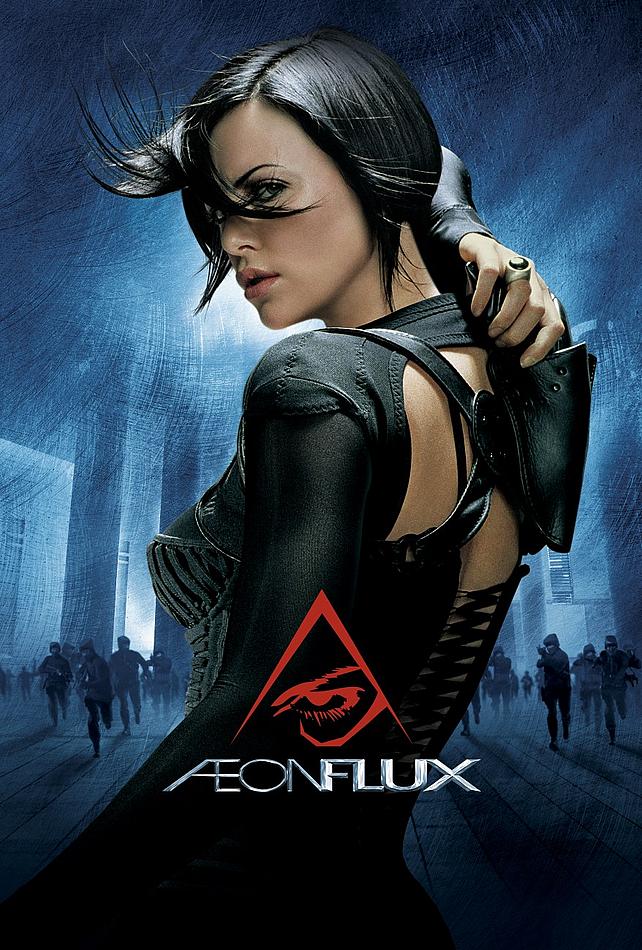 It is too early to start speculating about a girlswithguns.org curse? I mean, we’ve only ever put two banners for movies on our home-page: the first was Catwoman which ended up getting Razzie nominations across the board, and now we have Æon Flux, a film deemed so bad by its studio, they decided not to show it to critics. And given some of the other dreck put out by Paramount this year, with a full promotional push…the results were probably inevitable.
It is too early to start speculating about a girlswithguns.org curse? I mean, we’ve only ever put two banners for movies on our home-page: the first was Catwoman which ended up getting Razzie nominations across the board, and now we have Æon Flux, a film deemed so bad by its studio, they decided not to show it to critics. And given some of the other dreck put out by Paramount this year, with a full promotional push…the results were probably inevitable.
For, y’see, many “proper” critics do not like being deprived of their free screenings with reserved seating, and being made to pay $9 to see the movies with (ugh!) a proper audience. I strongly suspect a significant number phoned in their review without bothering to see see – or, at least, pay attention to – the film, under oh-so-“witty” titles like “Flux Sux”. If the studio basically tells you a movie blows, why argue? [It takes phenomenal guts to go against the tide, but Flux did get some good reviews]
Truth is, of course, it’s not as bad as they’d have you imagine. Not brilliant, sure, but worse films come out, almost any weekend. I’m always happy to see a nicely-detailed take on the shape of things to come, and Flux certainly delivers there, with a Brave New World-like utopia, where everyone is happy…at least on the surface. Of course, if you’re familiar with the excellent Equilibrium, you’ve seen this kind of thing before – but say what you like about the Nazis, they had some great architects, and the same is true here. Particular kudos also to costume designer Beatrix Aruna Pasztor, who deserves an Oscar nomination for her efforts, which have a sleek, futuristic style to them that’s undeniably impressive.
Theron also has the necessary gravitas for the role, and to my ears, even sounded like the character did. She has the tall, spindly appearance too, though the hair is definitely well wide of the mark, and her clothes are – inevitably – toned down from the “fetish wear on amphetamines” depicted in the series. That’s probably a necessity for the PG-13 rating, which also hampers the film in other ways – I’ll say more on that later. But as an adaptation in general, it’s so wide of the mark, you’d be better off ignoring this aspect entirely.
However, it would probably have been foolish to expect otherwise. Given the dense, impenetrable nature of the series, there’s no way a studio was going to spend $60m to make something like that, to open on 2,000+ screens across America. The storyline here is much more linear, logical…and, well, probably less interesting. 400 years after a virus wipes out 99% of the world’s population, Æon is a Monican rebel, fighting the powers-that-be in Bregna, the only city left. However, when her sister is killed by the authorities, it becomes personal, and she takes on a mission to kill Trevor Goodchild (Csokas). However, when she faces him, she finds herself unable to complete her task, and from there she discovers that life is not quite what it seems. Though the revelations are more likely to provoke a shrug than any actual surprise.
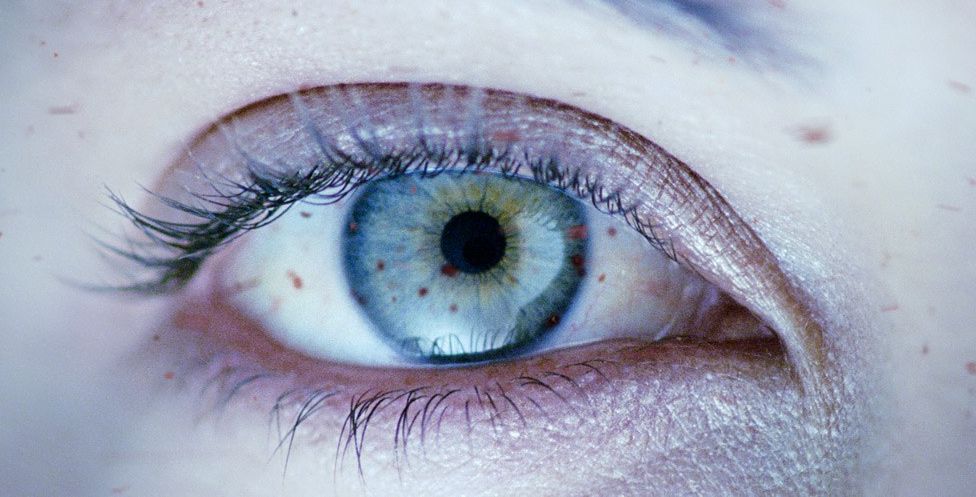 The main problem, however, is Karyn Kusama, whose previous work, Girlfight was very good, but was an up-close and personal character study, about as far from the sprawling SF sensibility require here as imaginable. This, I think, summarizes part of the problem with Hollywood and “girls with guns”: they appear to think all action heroines are the same. Hey, you did a film about an inner-city schoolgirl who uses boxing as an escape valve? You’d be perfect to helm an effects-packed, post-apocalyptic, science-fiction movie starring a supermodel gone berserk! No. No. A thousand times no. They should perhaps have gone with producer Gale Anne Hurd, who does at least have an action/SF background, from her work on the Terminator series, Aliens, Hulk, etc. Kusuma seems out of her depth, sad to say.
The main problem, however, is Karyn Kusama, whose previous work, Girlfight was very good, but was an up-close and personal character study, about as far from the sprawling SF sensibility require here as imaginable. This, I think, summarizes part of the problem with Hollywood and “girls with guns”: they appear to think all action heroines are the same. Hey, you did a film about an inner-city schoolgirl who uses boxing as an escape valve? You’d be perfect to helm an effects-packed, post-apocalyptic, science-fiction movie starring a supermodel gone berserk! No. No. A thousand times no. They should perhaps have gone with producer Gale Anne Hurd, who does at least have an action/SF background, from her work on the Terminator series, Aliens, Hulk, etc. Kusuma seems out of her depth, sad to say.
 There is some inspired gadgetry, such as Æon’s little explosive balls, which do tricks on command, and her eye, which can see chemical additives in a glass of water. There is also what is presumably a VR implant, letting her enter the 25th century version of a chat-room to get orders from McDormand. The hair-do on Æon’s boss is from the “through a hedge backwards” school of hairdressing, so it appears that customizable avatars were also wiped out by the pandemic. But like most of the costumes and set design, the futuristic infrastructure is generally well-realised.
There is some inspired gadgetry, such as Æon’s little explosive balls, which do tricks on command, and her eye, which can see chemical additives in a glass of water. There is also what is presumably a VR implant, letting her enter the 25th century version of a chat-room to get orders from McDormand. The hair-do on Æon’s boss is from the “through a hedge backwards” school of hairdressing, so it appears that customizable avatars were also wiped out by the pandemic. But like most of the costumes and set design, the futuristic infrastructure is generally well-realised.
The supporting cast come off variably well. Okenodo (left) plays another rebel, with hands in place of her feet, a nice touch that deserved better exploration. “I like my shoes” is Æon’s response when asked why she doesn’t get the same surgery – that’s the kind of perfect, cool, cast-off line the film needs more of. Csokas, and Miller as his ambitious brother who will do anything to keep the status-quo, are solid; but McDormand and Pete Postlethwaite are both badly wasted in throwaway roles, the latter dressed to look embarrassingly like, as one review put it, a Hot Pocket.
Then there’s the action. Save the final battle, which actually reaches the giddy body-count levels beloved of the animated series, they’re poorly-edited – second-unit director Alexander Witt helmed Resident Evil: Apocalypse, which has exactly the same problem. You’ve got a heroine to whom calm, athletic poise is apparently second nature: why not show her for longer than two frames, without cutting somewhere else? Hell, Theron got injured making this – not that you could tell by the time this went through the MTV blender. As a result, the fights pose no threat to the heroine, since you haven’t got a clue what’s going on: your average video-game causes more concern for the participants.
This brings me back to that PG13-rating, which means the violence doesn’t have any edge to it – at one point, Trevor Goodchild takes two bullets to the torso, and it barely slows him down. In the animated series, death was an ever-present occupational hazard for Æon, and the result had a dark, tough feel that is very much missing here. Instead, the tone is indistinguishable from any other heroic SF. The sexual tension is also much reduced – though keep an eye out for Theron’s real-life squeeze, Stuart Townsend, who cameos in the opening scene, passing a message with his tongue to our heroine. That, and Æon trapping a fly with her eyelash, are about the only moments truly recognisable from the series – and, truth be told, largely prove only that some things work better in animation.
That’s a fitting summary for the film as a whole. This is not the disaster you might expect from some reviews (hell, it’s a million times better than what we watched the next night, the woeful and inept National Treasure, which somehow managed to become a smash-hit). However, there’s no denying that this is a disappointing conversion of a classic series. Its failure at the box-office puts the final nail in a very mediocre year for the action heroine at the box-office, that staggered from bad to worse: Elektra. Domino. Æon Flux. Shudder. We’ll move rapidly on, and raise a glass of Christmas cheer, in the hope that our favourite genre finds some better success in 2006. When’s Underworld: Evolution out?
Dir: Karyn Kusama
Stars: Charlise Theron, Marton Csokas, Johnny Lee Miller, Sophie Okonedo
a.k.a. Aeon Flux



















 You’ve got to admire any film – particularly a TV movie – that provokes diverse reviews. This, then, not only “
You’ve got to admire any film – particularly a TV movie – that provokes diverse reviews. This, then, not only “
 The picture on the right probably does a better job of explaining what Cutey Honey is about than I ever could; part-girl, part nano-technology, rebuilt post-car crash with superpowers and some interesting costumes, which require fuelling through junk food. After her uncle is kidnapped by the evil Sister Jill (Sakai) and his/her/its minions – Jill is part tree, and has also been kidnapping women en masse, in order to drain their lifeforce – only Cutie (Sato) can save the day, assisted by a no-nonsense policewoman (Ichikawa) and a journalist who, basically, acts as “Exposition-San” (Murakami).
The picture on the right probably does a better job of explaining what Cutey Honey is about than I ever could; part-girl, part nano-technology, rebuilt post-car crash with superpowers and some interesting costumes, which require fuelling through junk food. After her uncle is kidnapped by the evil Sister Jill (Sakai) and his/her/its minions – Jill is part tree, and has also been kidnapping women en masse, in order to drain their lifeforce – only Cutie (Sato) can save the day, assisted by a no-nonsense policewoman (Ichikawa) and a journalist who, basically, acts as “Exposition-San” (Murakami).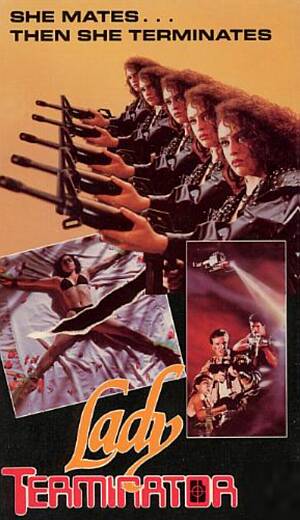 Watching the unstoppable female killing machine in this 1988 Indonesian film might make Terminator 3 seem less original – except most of the concept here, as well as entire scenes and exact lines of dialogue, come directly from the
Watching the unstoppable female killing machine in this 1988 Indonesian film might make Terminator 3 seem less original – except most of the concept here, as well as entire scenes and exact lines of dialogue, come directly from the  It’d probably be best to watch the original film, Poly Matrix, immediately before this, as otherwise, you’ll be kinda hitting the ground running. After those events, Ross Syllabus and “Third” [a model of android which can reproduce] Armitage have set up home with their daughter, who doesn’t know her mother is anything by human; meanwhile Ross operates under an assumed name as a security guard. However, an incident turns him into an unwilling spokesman for robot rights once again, and when he is sent to Earth as a Martian delegate, his daughter Yoko is kidnapped by a faction seeking to reverse his vote. It’s time for Armitage to put aside her chores and kick butt.
It’d probably be best to watch the original film, Poly Matrix, immediately before this, as otherwise, you’ll be kinda hitting the ground running. After those events, Ross Syllabus and “Third” [a model of android which can reproduce] Armitage have set up home with their daughter, who doesn’t know her mother is anything by human; meanwhile Ross operates under an assumed name as a security guard. However, an incident turns him into an unwilling spokesman for robot rights once again, and when he is sent to Earth as a Martian delegate, his daughter Yoko is kidnapped by a faction seeking to reverse his vote. It’s time for Armitage to put aside her chores and kick butt. Do
Do  As a rule, we don’t watch dubbed anime, finding it a painful experience; unfortunately, this version, which compacts four OAVs into a feature, is
As a rule, we don’t watch dubbed anime, finding it a painful experience; unfortunately, this version, which compacts four OAVs into a feature, is 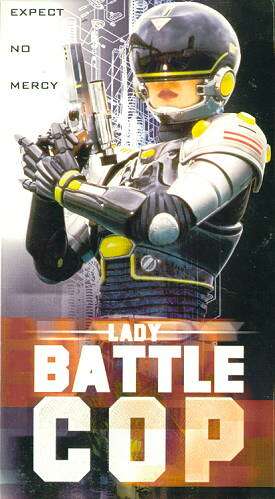 At least, so claims one of the songs in this largely ineffective movie, about professional tennis starlet Kaoru – Anna Kournikova will be in the Hollywood remake, no doubt – who is transformed into a crime-fighting machine. This takes place after she is killed by the Cartel, a crime syndicate bent on taking over Japan, despite apparently having about seven members. They do, however, have a “psychic robot” called Amadeus, which is probably the sole original thought in the entire film, and the whole thing gets kicked up a notch during his battles. The interesting question of where he came from (apparently a NASA creation), is never explored. This is a shame, since it’d be rather more interesting than almost anything the film actually offers.
At least, so claims one of the songs in this largely ineffective movie, about professional tennis starlet Kaoru – Anna Kournikova will be in the Hollywood remake, no doubt – who is transformed into a crime-fighting machine. This takes place after she is killed by the Cartel, a crime syndicate bent on taking over Japan, despite apparently having about seven members. They do, however, have a “psychic robot” called Amadeus, which is probably the sole original thought in the entire film, and the whole thing gets kicked up a notch during his battles. The interesting question of where he came from (apparently a NASA creation), is never explored. This is a shame, since it’d be rather more interesting than almost anything the film actually offers. Though I hope 80’s hair
Though I hope 80’s hair 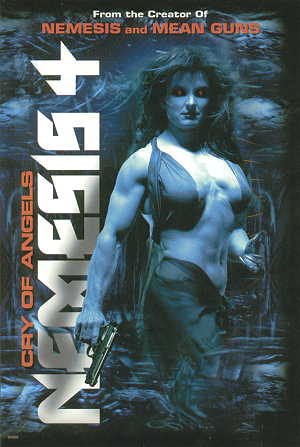 Though the lead actress, body-builder Sue Price, looks nothing like the cover pic (right), credit is due for choosing someone who defies conventional standards of female beauty. However, take all the points away, and then some, for pretending she does; having her spend half the film naked is something both Chris and I could very easily have lived without. She is, frankly, scary. That’s a shame, as while the budget here was obviously tiny, it’s put (mostly) to good use, with an interesting script.
Though the lead actress, body-builder Sue Price, looks nothing like the cover pic (right), credit is due for choosing someone who defies conventional standards of female beauty. However, take all the points away, and then some, for pretending she does; having her spend half the film naked is something both Chris and I could very easily have lived without. She is, frankly, scary. That’s a shame, as while the budget here was obviously tiny, it’s put (mostly) to good use, with an interesting script.